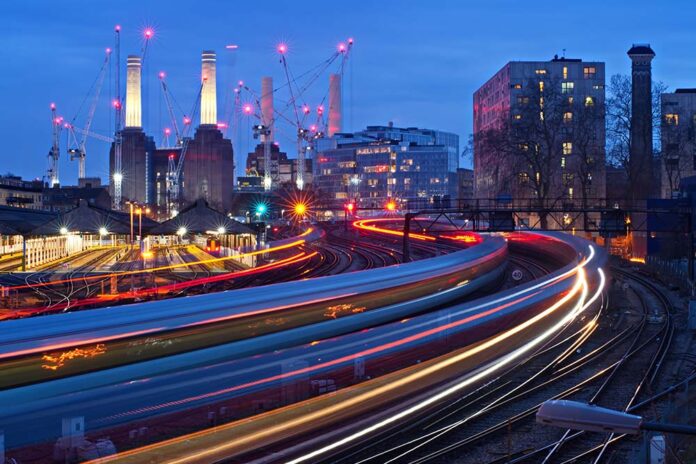Arcadis has released a new report which says that London is, once more, the most expensive place for construction.
The data was compiled as part of the global design and consultancy organisation’s International Construction Costs (ICC) report. In its breakdown, London ranked above Geneva (second place) and Oslo (third place).
The five least expensive cities are found in Asia and India.
The impact of energy costs, materials shortages and more
Due to a combination of cost drivers – including rising energy costs, materials shortages and labour availability – along with high sector-specific demand, particularly residential and industrial, markets in North America and many European cities recorded double-digit cost increases.
As a result, American cities moved significantly up the ranking. This upward trend was also helped by the US dollar appreciating on average by 5% against most currencies. Cities in the UK and Germany also moved up the index.
Across Asia, the picture has been mixed, with costs remaining largely stable. One exception is Singapore, where difficulties in accessing labour triggered high levels of inflation. In Australia and the Middle East, on the other hand, demand levels did not quite meet expectations, leading to a more competitive market and a more significant portion of costs being absorbed by the supply chain. This has resulted in locations such as Melbourne and Sydney dropping as much as 10 places in the ranking in 2022.
UK’s recovery to a new landscape
UK construction completed its recovery from COVID-19 by late 2021, but had changed shape significantly, with dynamic growth in both large-scale infrastructure and small-scale domestic home improvements. The UK’s infrastructure investments are spearheaded by the Hinkley Point Nuclear Power Station and High Speed 2, where spend will really start to accelerate from 2022 onwards.
The UK’s building contracting sector has seen mixed fortunes. The logistics and industrial sub-sectors are booming despite long lead times for critical steel products, whereas commercial and public sector building development is slow, helping to keep construction markets competitive.
The 2022 Arcadis ICC Index covers 100 of the world’s large cities across six continents. The cost comparison was developed covering twenty building functions, based on a survey of construction costs, review of market conditions and the professional judgement from its global team of experts. The calculations are based in USD and indexed against the price range for each building type relative to Amsterdam. Analysis was undertaken prior to the conflict in Ukraine, which is set to exacerbate material and hydrocarbon shortages, bringing significant repercussions for global commodity and energy markets, and increased global uncertainty.
In addition to providing a comparative index of global construction costs, this report also looks at construction around the world and notes that differing government COVID-19 strategies have resulted in varying paces of recovery.
With the impact of materials shortages and rising costs being felt across the supply chain, businesses are looking towards tackling pressing and persistent problems such as low productivity, staff retention and project resilience.
Sustainability is equally high on the agenda, with the economic pressure of resource scarcity and net-zero goals increasing the importance of doing more with less. The use of digital products and solutions to tackle resource scarcity and reduce waste are key, along with a focus on the full project lifecycle, rather than the cost of short-term returns.
A five-point ‘Practical Guide’ is presented in the report to provide a pragmatic guide to dealing with the challenges ahead, demonstrating how clients can rationalize, standardize, automate, and use digital processes to be more cost-effective, and meet essential sustainability goals.
Andy Beard, Global Head of Cost and Commercial Management at Arcadis, said: “Construction has proved itself extremely robust during the last year in adapting to the most difficult of circumstances. Sustained delivery of housing and infrastructure, better use of data, and increasing investment in technological solutions such as modern methods of construction can both improve efficiency and aid the drive to net-zero.
“This adaptability will prove vital as businesses ready themselves for the uncertain and inflationary environment ahead. While on the surface the looming market conditions sound unfavourable, we believe these challenges more than ever present our industry with a great opportunity to drive forward innovation and cement a mentality of doing more with less to reduce our own impact on resource use and the environment.”
Andy Beard, Global Head of Cost and Commercial Management at Arcadis, said: “Construction has proved itself extremely robust during the last year in adapting to the most difficult of circumstances. Sustained delivery of housing and infrastructure, better use of data, and increasing investment in technological solutions such as modern methods of construction can both improve efficiency and aid the drive to net-zero.
“This adaptability will prove vital as businesses ready themselves for the uncertain and inflationary environment ahead. While on the surface the looming market conditions sound unfavourable, we believe these challenges more than ever present our industry with a great opportunity to drive forward innovation and cement a mentality of doing more with less to reduce our own impact on resource use and the environment.”
Where do UK and Ireland cities rank?
Bristol – 11/100
Dublin – 12/100
Manchester – 14/100
Liverpool – 16/100
Edinburgh – 17/100
Cardiff – 18/100
Glasgow – 22/100
Birmingham – 25/100
Belfast – 36/100



































 0113 2082620
0113 2082620 info@railbusinessdaily.com
info@railbusinessdaily.com 15 Mariner Court, Wakefield WF4 3FL
15 Mariner Court, Wakefield WF4 3FL

